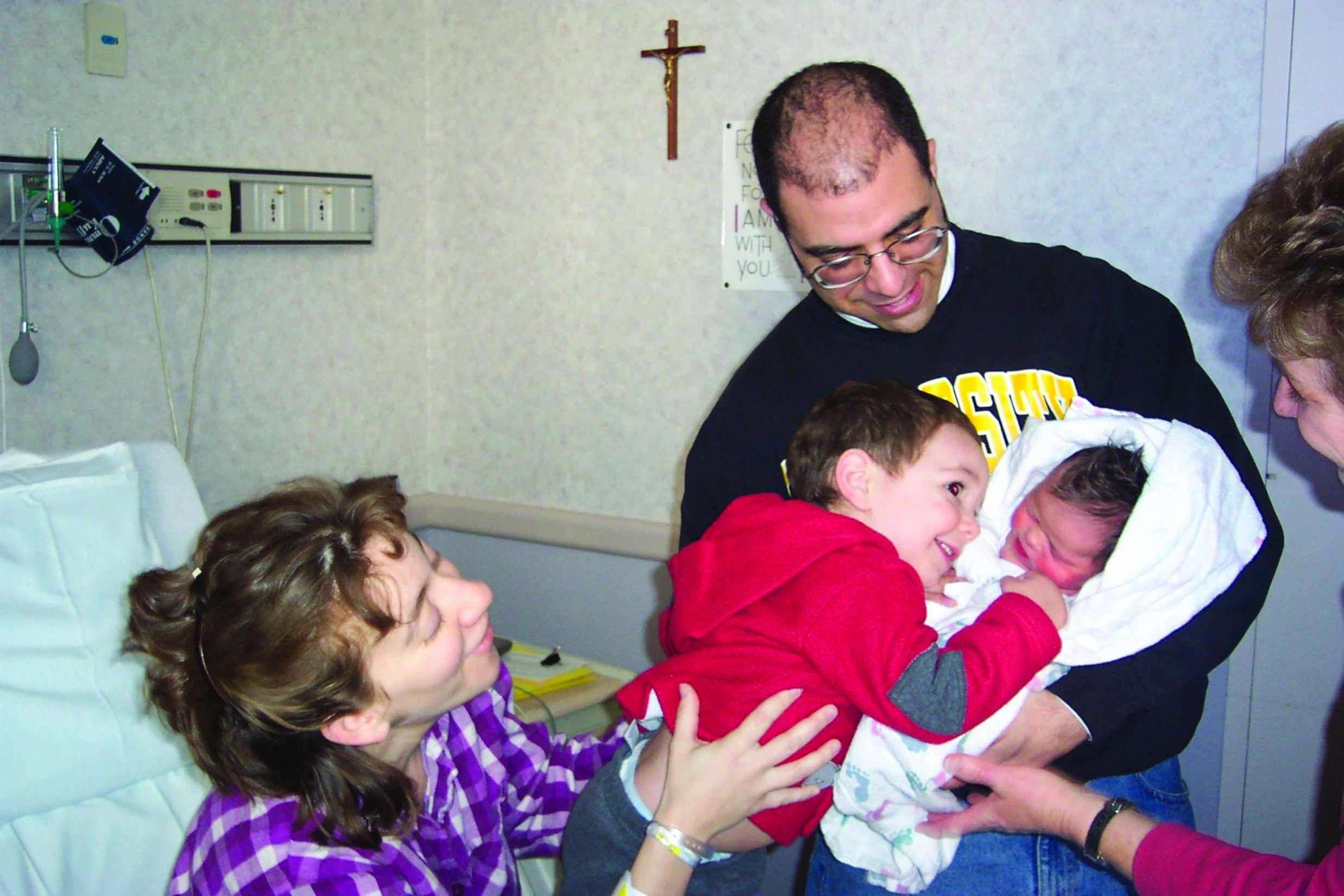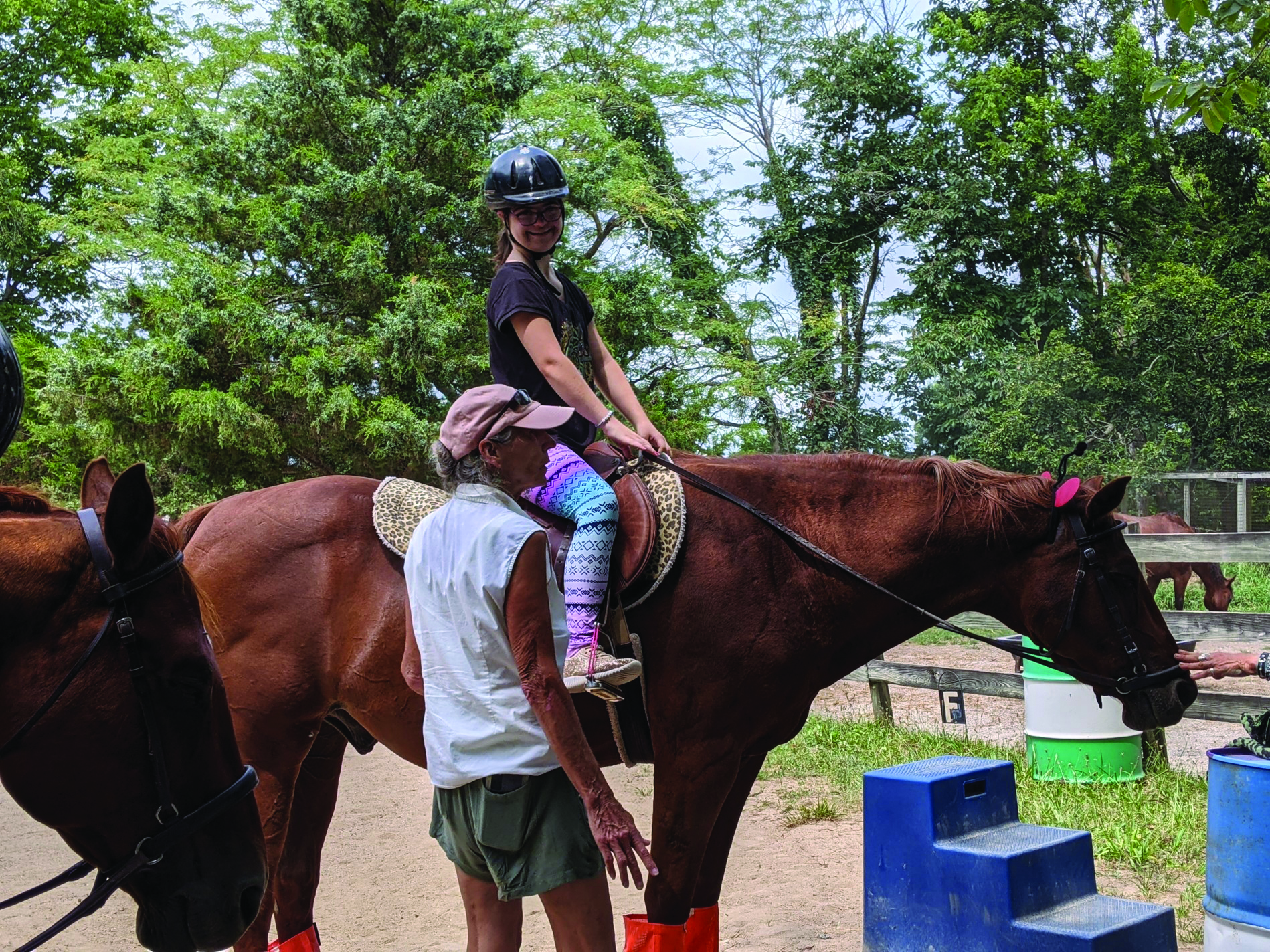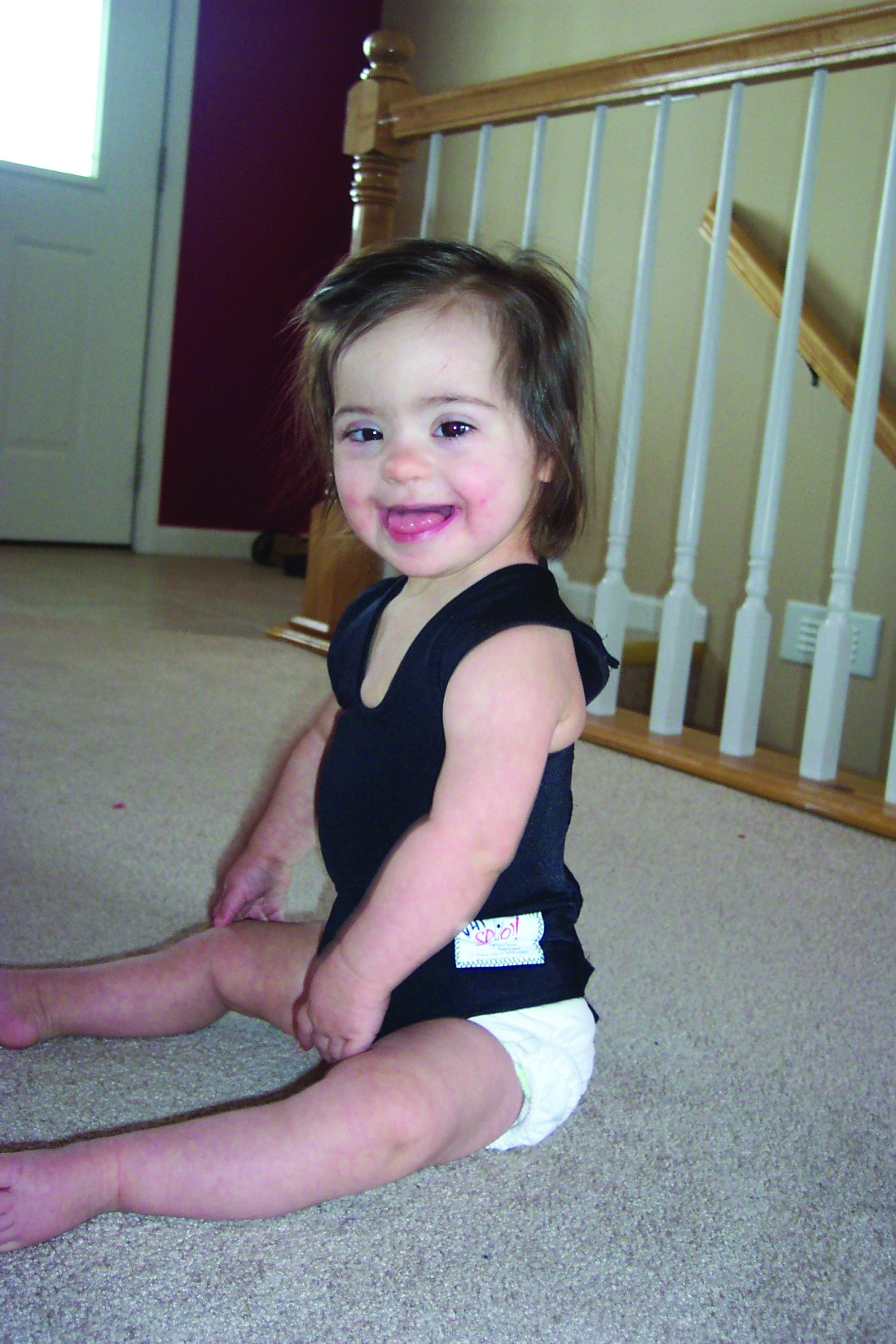
5 minute read
Boone Health Working With Down Syndrome Organization to Connect Parents
Boone Health Working With Down Syndrome Organization to Connect Parents
When my daughter was born in 2007, the St. Louis hospital where she was born was totally unprepared for a diagnosis of Down syndrome. Her 20-week ultrasound gave no warning, but the moment the delivery room staff saw her, they knew, and the tone turned instantly into a fake sounding “happy-happy.” I felt it happen, I just didn’t know why… until two hours later, when the doctor came in and spoke two words that erased all other memory: “chromosomal abnormality.”
At the moment he said those words, I’d seen my newborn for exactly thirty seconds. I had spent an hour or more asking when my baby would be brought to me to nurse.
In the first twenty-four hours after our daughter’s birth, my husband Christian and I went into complementary survival modes. I knew my job was to bond with the baby. My husband knew he needed to take charge of finding out what this new reality required of us.

At the time, the hospital in St. Louis had no resources to offer us, so he went online and also engaged with family. Christian quickly learned that because 50% of children with Down syndrome are born with heart defects, an echocardiogram is standard of care for a newborn with Trisomy 21 (the medical term for Down syndrome). Christian asked the hospital-assigned pediatrician why we had not heard about this yet?
The pediatrician said, “Three doctors listened to your daughter, and she has no heart murmur, so it would be a waste of money. We’re not going to do one.”
It was our first lesson in special needs parenting: there will always be people throwing obstacles in the way, and as parents, you will have to be a bulldozer.
After twenty-four hours of escalating conflict, they finally agreed and did the echo — and discovered that our daughter did have a heart defect. In fact, she had three, significant enough to require open-heart surgery when she was six months old.
The lessons Christian and I learned in those first days of our daughter’s life marked us for the rest of our lives. We learned we had to advocate for our daughter at every step.
We also learned that support and connection with community resources can be hard to access. Privacy regulations are ironclad; parents contemplating a Down syndrome diagnosis have literally no way to find each other. We were lucky.

Three of our family’s most meaningful contacts came by sheer happenstance: running into one young mother and child with Down syndrome at Kidz Court in the Columbia Mall; spotting another child a few years later at the Jefferson City ice rink; the sheer luck of our oldest son being assigned to a baseball team where another boy had a younger sister with Trisomy 21.
Christian and I have made family connection and support one of our primary goals as parent advocates. We don’t want anyone to go through what we did. We know that families given a diagnosis of Down syndrome all have questions, fears, and anxieties. We know that they need reassurance that they’re not alone and that there is hope and brightness in their future.
But we also know that for most families contemplating a disability diagnosis, reaching out to ask for that support from total strangers is excruciatingly difficult. In fact, it’s nearly impossible.

Health care workers, and the institutions where they work, stand in a beautiful place in these moments. Doctors, nurses, and social workers are perfectly placed to help facilitate contact for families who don’t have the emotional bandwidth to reach out themselves. And more and more, we are seeing OB/Gyn doctors, their staff and the nurses in Labor and Delivery helping guide those families toward important resources when they know about them. Not surprisingly, the providers and staff at Boone Hospital have been more than happy to continue learning about these resources in mid-Missouri for their current and future patients.
Recently, Christian and I had the opportunity to talk to OBs/Gyns and Labor & Delivery staff who work at Boone Hospital. These incredibly caring people listened intently as we shared our story and underscored how important a role they, as medical professionals, have in facilitating connections between parents and local resources.
We are blessed in central Missouri with a host of organizations, both public and private, that are ready to step in and offer guidance, information, and training to families grappling with questions they might not even know how to put into words.
The staff at Boone Health had already been aware of some of the community resources, but they were willing to meet with us to make sure they had the latest information. Christian and I are overwhelmed with gratitude to Boone for welcoming us in to speak to doctors and nurses, to let us share our story, and to begin forging connections that we hope will serve families long into the future.
By Kate Basi

Connect with Community

If you have questions about Down syndrome, please feel free to connect with Kate and Christian Basi at KathleenBasi@gmail.com or ChristianBasi1999@gmail.com or through the Central Missouri Down Syndrome Parent Forum at facebook.com/groups/348615525839430.










